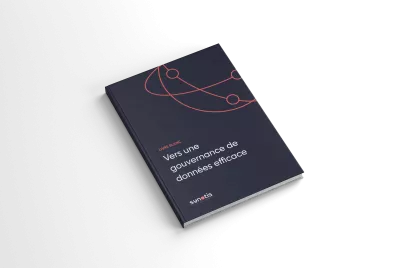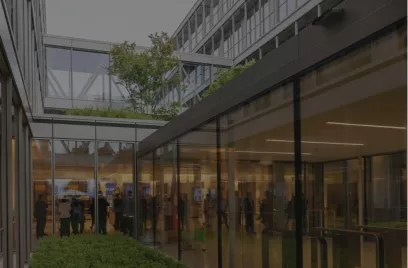
Digital sovereignty: a strategic challenge for Swiss organizations
In a world where data represents a critical asset, the ability to control information flows, choose infrastructures, and ensure regulatory compliance has become essential.
This requirement concerns both private companies and public institutions, all striving to guarantee the confidentiality, integrity, and availability of their data—while reducing dependency on technology providers subject to foreign jurisdictions.
In this context, traditional architectures, often based on silos, quickly reach their limits: they are complex to maintain, inflexible, resource-intensive, and poorly suited to the agility required by business teams.
This is where data virtualization, especially through solutions like Denodo, offers a powerful and pragmatic alternative.
Data Virtualization: a modern approach to information management
Unlike traditional approaches that rely on replicating or centralizing data into warehouses or data lakes, data virtualization allows unified access to multiple sources without moving the data. Information remains where it is created or stored, but becomes accessible via a virtual abstraction layer.
This architecture enables a unified, consistent, and secure view of all organizational data—regardless of its type (structured or unstructured) or location (on-premise or in the cloud). The benefits are numerous:
- Reduced costs linked to data movement and duplication
- Real-time access to information across disparate systems
- Faster time-to-market for data projects
- A self-service BI platform for business users
- Improved governance through centralized rights and data flow management
Denodo: a virtualization platform aligned with sovereignty goals
Denodo is one of the world’s leading data virtualization platforms. It integrates easily into existing IT environments and provides a single access layer to all organizational data, without the need for heavy development or complex transformations.
Although based on a commercial model, Denodo fully supports open standards. It allows for the construction of an interoperable, auditable, and vendor-neutral data architecture, aligning perfectly with digital sovereignty objectives.
What Denodo enables in practice:
- Federation of multiple sources (ERP, CRM, SQL/NoSQL databases, files, APIs, etc.)
- Reconciliation of heterogeneous data models to create unified business views
- A user-friendly data catalog promoting autonomy
- Fine-grained and traceable access and security rules
- Support for critical use cases: BI, real-time analytics, inter-application exchanges, system migrations, etc.
Real-world example: ECA of the Canton of Vaud modernizes its architecture with Denodo
The Établissement Cantonal d’Assurance (ECA) of the Canton of Vaud illustrates Denodo’s added value in a demanding Swiss public context. As part of a digital transformation project, ECA sought a solution that would:
- Streamline access to data scattered across multiple systems
- Improve the quality of information delivered to users
- Provide an agile platform for information delivery, especially for analytics
- Reduce delivery time and technical effort for each new requirement
With Denodo, ECA implemented a centralized virtualization layer, significantly reducing time-to-delivery while improving data traceability and governance. The integrated data catalog also encouraged adoption among business teams, who now have self-service access to information—without constantly relying on IT.
Open Source: a natural complement to digital sovereignty
Data virtualization fits into a broader approach to building sovereign and sustainable systems. In this vision, open source plays a key role.
Relying on open technologies not only ensures code transparency, but also limits vendor lock-in, allows for local adaptation, and enables national hosting of infrastructures. Open source and data virtualization are thus complementary levers for building a modern, sovereign, and agile data architecture.
Tailored support with Synotis and Smile
Implementing Denodo and building a sovereign architecture requires more than just a tool—it demands a deep understanding of business, regulatory, and technical challenges.
Synotis, a consulting firm specialized in data management, has been supporting Swiss clients for over 10 years in their data projects. By leveraging the recognized expertise of Smile in open source technologies, Synotis offers comprehensive support:
- Needs assessment and target architecture design
- Integration of Denodo into complex ecosystems
- Optimization of data and process governance
- Training for long-term team autonomy
A concrete lever for sovereign and high-performance information systems
In the face of increasingly critical challenges around digital sovereignty, Swiss organizations must rethink how they manage their data. Data virtualization with Denodo, combined with an open source–driven technology culture, offers a powerful, sustainable, and pragmatic response.
Beyond the technical benefits, it represents a new way of organizing access to information, restoring agility to business teams, and ensuring complete control of digital assets.
To learn more about data virtualization, feel free to contact our experts or watch the replay of our conference.


